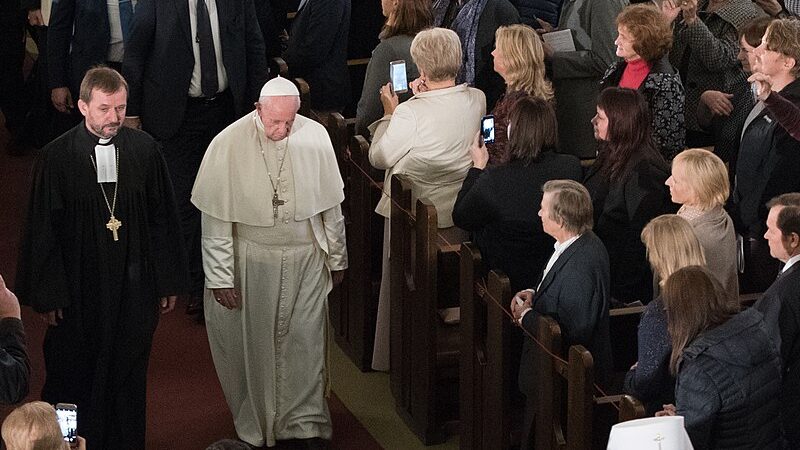He was already there waiting, as always wearing a tie. He placed a blank sheet of paper in front of me. „Write an application,” he ordered. I wrote: „To the Tartu office of the State Security Committee. Please accept me as a……”. I can't remember the exact wording. But I do vividly recall an unpleasant hollow feeling.
And then I had to join the communist youth organization (Comosomol). All this so that I could partcipate in the study program. I was given a KGB cover name. My contact offered me many different cover names and I simply picked one of them.
Thinking about it now, it was a monumental decision for me – whether or not to sign an agrteement. In effect I sold my soul. But it did the job. That let me visit the West.
A day before leaving I met with my pale KGB contact. He tasked me with being an in informant during the trip, keeping an eye on the others and reporting anything of interest. [It was well-known that all groups from the Soviet Union visiting the west had KGB informers planted ‚secretly' in their midst. Usually the rest of the group knew exactly who these individuals were. Depending on the size of the group their might be 2-3 informers.]
I told my friend of what I intended to do, that I'd never return. He said that he would regret that we ever were friends.
Then we left for the West. We had to remain in groups of three when moving about. [Soviet authorities were convinced that in groups of 3-4 not every one could be a possible defector or an anti-Soviet subversive.] I told others that being forced to walk in groups was nonsense and started to walk alone.
It was November, damp and foggy. I had only a few hours left before the group was to prepare for returning to the Soviet Union. I was among strangers on the street and didn't know what to do. Thinking back on it now, I must have appeared lonely and desparate.
What should I do? Send everyone to hell and not return? I recalled my friend. I thought of all the people who had given me letters of reference. [In applying for trips abroad, letters of reference were mandatory. Written agreement was also necessary from one's local trade union chief, the head of one's professional federation such as the Writers' Federation, Artists' Federation etc., the head of one's work establishment, the ‚partorg' or the sectretary of the Communist party cell at that establishment and of course a final nod from the KGB. Before setting off for a trip to the West, practically all were briefed as to what they were allowed or forbidden to do. Visiting any community establishments of Estonians in exile – cultural centres, churches etc. was strictly forbidden, as was attending any function with a patriotic Estonian or anti-Soviet flavour to them. A story is told that a man from Estonia in the 1980s visited his sister in Toronto who took him to a Saturday evening dance at Estonian House where the sister kept her brother from meeting anyone. Upon arriving back home late in the evening, the visitor received a phone call from his wife in Estonia who told him that he had broken the agreement of not visiting a cultural centre etc. He was told to take the next Aeroflot flight back and cut his visit short.]
If I didn't return, my future would be uncertain. If I had gone to the local police, what then? I'd be absolutely alone. I returned to Soviet-occupied Estonia. I felt abismal, sorry for myself and for others. I reported to my KGB contact that all in the group were well-behaved on the trip. Nobody betrayed the homeland.
I decided never to contact the KGB again. If they were to contact me and the same game of intimidation were to start, I would definitely defect at the next possible trip abroad.
Soon it was 1988 and perestrioka was in full swing. Estonia's previously forbidden national tri-colours, pop music festivals and the promotion of freedom were widely acceptable. After returning from abroad I wasn't bothered anymore by the KGB. This was an incredible development. Had it been otherwise I would have jumped ship at the first available opportunity.
I'm deeply embarrassed that this happened to me. But I have not betrayed anybody's trust or sold anyone down the river. After Estonia achieved its independence, I went to the Estonian Security Police and revealed everything. I don't know how many amongst those who were recruited like me were truly loyal to the KGB. I'm convinced that most were co-opted under duress.
My pale KGB contact works for a newspaper now, not in any journalistic capacity. And he's still a smooth talker.
*
It's difficult to take at face value the narrator's claim that the KGB left him alone and that he didn't give the KGB anything of value. On the other hand, if his role as an agent was played out mostly during the peretsroika period, the KGB actually was less aggressive and intrusive. A good example would be the August 23, 1987 demonstration in Tallinn's Hirve park in which unequivocal demands for Estonia's freedom and independence were publically expressed by the organizers and guest speakers. Yes the KGB were present videotaping individuals. But none of the organizers or participants were harassed. No one was charged.
It has been esimated that some 16,000 individuals were recruited as agents during the long Soviet occupation period in Estonia. This does not include trustees, informers and other categories of people willing to co-operate with the KGB. Starting on November of 1989 the agents' dossiers were relocated out of Estonia, some were destroyed locally and only fragments of the agents' activities are within the state archives of Estonia currently. However some information covering Estonian agents is available in Lithuanian archives that remained intact, unharmed by the KGB.
In 1995 new legislation protected the identities of those KGB officers and agents who voluntarily revealed their background to the Estonian security police. The identities of others were published in the official parliamentary public record „Riigi Teataja”, the equivalent of the „Hansard” in Canada.
Translated by Laas Leivat




